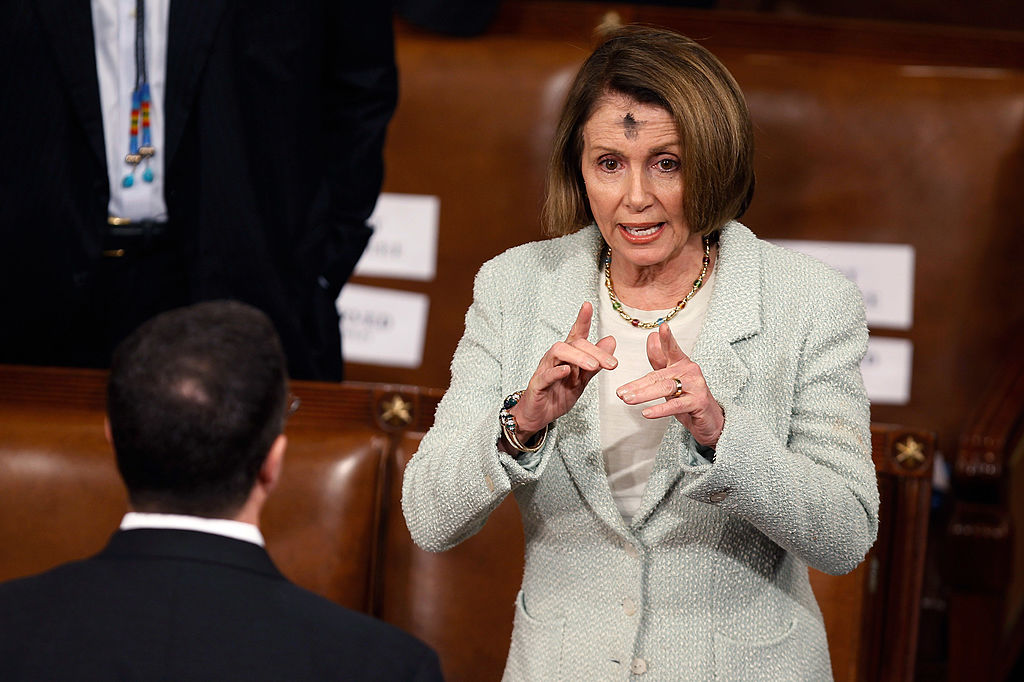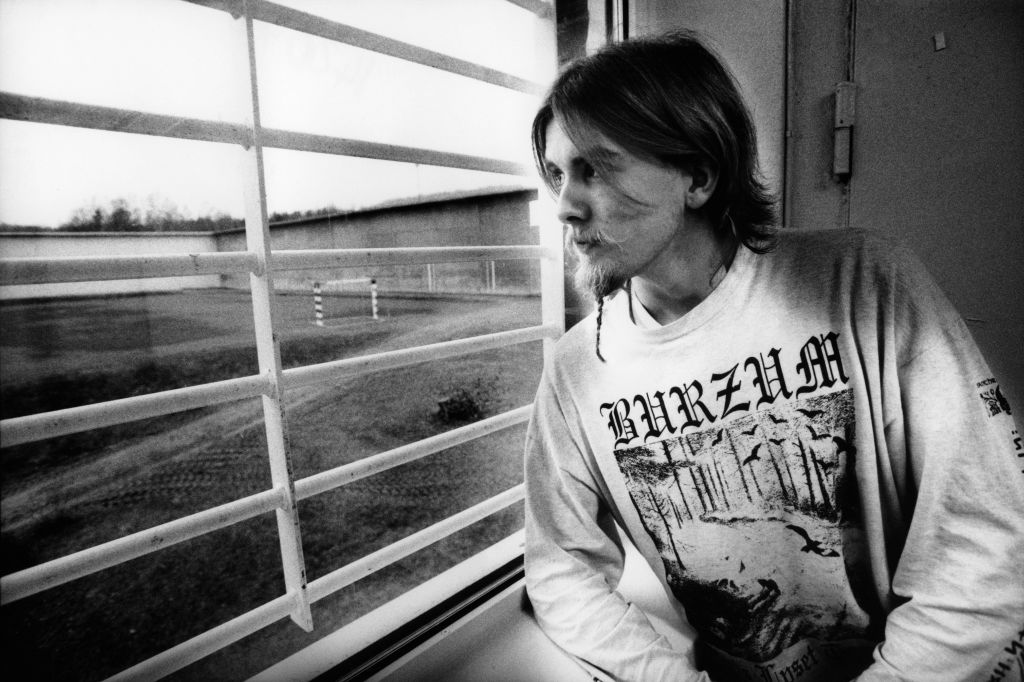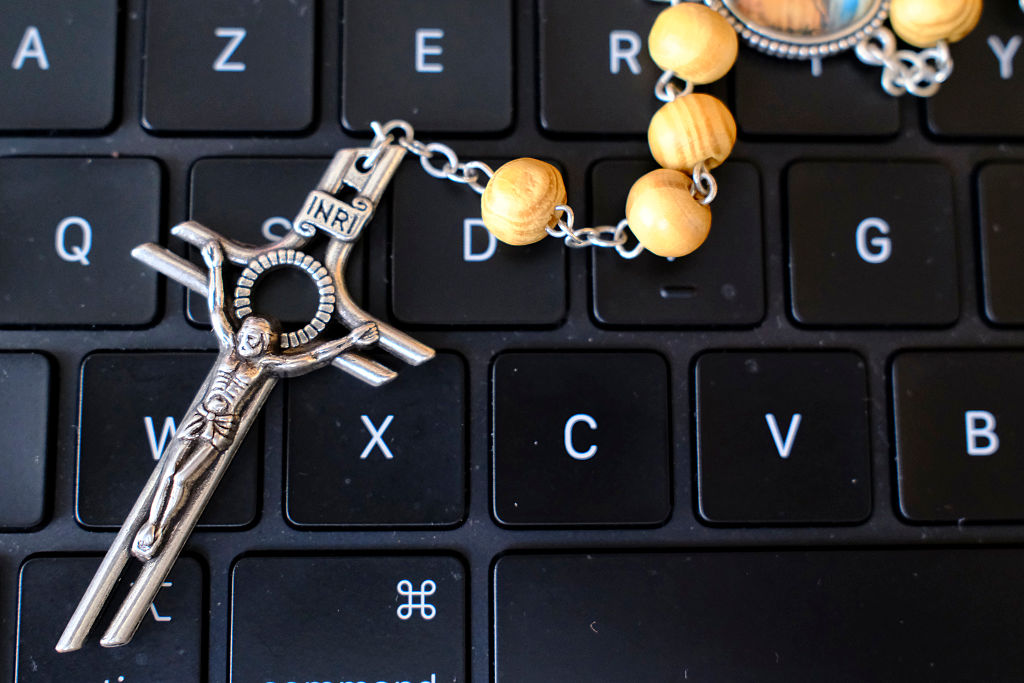San Francisco Archbishop Salvatore Cordileone’s recent announcement that Nancy Pelosi has been barred from receiving communion brought fresh to Cockburn’s mind a memory he has of once having accidentally attended church with the Speaker of the House (and lived to tell about it).
Sometimes alcohol can stir in one a devotional feeling, and so it was that Cockburn found himself at Mass one day at Holy Trinity Catholic Church in Georgetown, seated a few rows behind Pelosi. When the time came, Cockburn refrained from receiving communion, but wondered as he watched Pelosi head toward the altar whether anyone should tackle her to the ground to prevent the sacrilege. Cockburn considered doing it himself but didn’t want to risk Botox leeching onto his Sunday best (Nancy also had Secret Service guys on hand). Plus, he thought watching her melt to the floor could be fun, too.
As he watched her perma-grin her way back to her pew, Cockburn wondered why this woman, whose long life has been driven by stalwart dedication to a party’s agenda that often directly opposes the Catholic Church, would be there, in a Catholic Church, to partake in the “sum and summary” of the Catholic faith.
The Catholic Church has always been strictly against abortion, and Cordileone’s crack-down comes in the wake of Pelosi’s efforts to codify abortion into law, though the timing, according to Cordileone, is merely coincidental with the Supreme Court’s potential overturning of Roe v. Wade. Cordileone attests he’s been trying to speak to Pelosi about her stance on abortion for many months.
Though Pelosi’s pro-abortion rhetoric, as Cordileone put it, has become “more and more extreme and more and more aggressive,” her professed status as a “devout Catholic” has not diminished. She’s even reportedly defied Cordileone’s order to stop partaking of the Holy Eucharist. Why does she do it? Why say, “I am a strong Catholic who does not believe in the teachings of the Catholic faith?” That’s like saying, “I’m a card-carrying member of the Sierra Club who hates trees,” or, “I’m a radical progressive who doesn’t believe in taxes.”
Why does Pelosi — and Biden and any number of other “pro-choice” Catholics (an oxymoron, according to a Washington Post op-ed) even want to be associated with a religion whose views of “reproductive rights” are so at odds with their own? Why do they march around with Ash Wednesday smudges on their heads, essentially saying, “I don’t actually believe what this cross signifies”? It’s astounding how many people care so much about a church they disagree with. Many people have come to Pelosi’s defense, saying, “shame on you” in their calls to reverse Cordileone’s action, which they’ve labeled an “attack.”
Sure, being associated with some sort of religion is a good PR move for politicians, but if you’re pro-abortion, pro-LGBTQ, etc., any other church than the Catholic one is a better fit. Allow Cockburn to recommend to Pelosi the US Presbyterian Church, whose teachings on abortion, same-sex marriage, and other “social issues” should be liberal enough to suit Pelosi.
Cockburn concludes it’s the sin of pride that keeps Pelosi and others insistent in infiltrating the Catholic Church. But just as being canceled has become a sort of point of pride with conservatives, perhaps being excommunicated will bring with it the same badge of honor to left-wing “Catholics.”

























